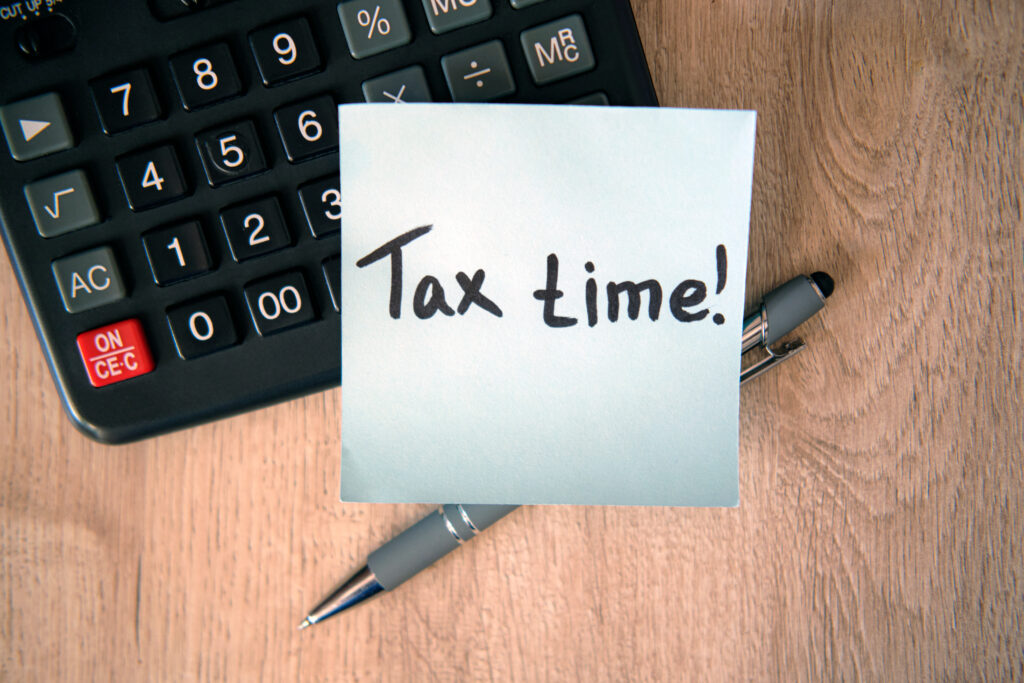Tips to Help Taxpayers with January 31 Tax Season Opening

We are again suggesting some tips to help taxpayers with the January 31 tax season opening. The IRS will begin processing most individual income tax returns on Jan. 31 after updating forms and completing programming and testing of its processing systems. The IRS anticipated many of the tax law changes made by Congress under the American Taxpayer Relief Act (ATRA), but the final law requires some changes before the IRS can begin accepting tax returns.
The IRS will not process paper or electronic tax returns before the Jan. 31 opening date, so there is no advantage to filing on paper before then. Using e-file is the best way to file an accurate tax return, and using e-file with direct deposit is the fastest way to get a refund.
Many major software providers are accepting tax returns in advance of the Jan. 31 processing date. These software providers will hold onto the returns and then electronically submit them after the IRS systems open. If you use commercial software, check with your provider for specific instructions about when they will accept your return. Software companies and tax professionals send returns to the IRS, but the timing of the refunds is determined by IRS processing, which starts Jan. 31.
After the IRS starts processing returns, it expects to process refunds within the usual timeframes. Last year, the IRS issued more than nine out of 10 refunds to taxpayers in less than 21 days, and it expects the same results in 2014. Even though the IRS issues most refunds in less than 21 days, some tax returns will require additional review and take longer. To help protect against refund fraud, the IRS has put in place stronger security filters this filing season.
After taxpayers file a return, they can track the status of the refund with the “Where’s My Refund?” tool available on the IRS.gov website. New this year, instead of an estimated date, Where’s My Refund? will give people an actual personalized refund date after the IRS processes the tax return and approves the refund.
“Where’s My Refund?” will be available for use after the IRS starts processing tax returns on Jan. 31. Here are some tips for using “Where’s My Refund?” after it’s available on Jan. 31:
Initial information will generally be available within 24 hours after the IRS receives the taxpayer’s e-filed return or four weeks after mailing a paper return.
The system updates every 24 hours, usually overnight. There’s no need to check more than once a day.

“Where’s My Refund?” provides the most accurate and complete information that the IRS has about the refund, so there is no need to call the IRS unless the web tool says to do so.
To use the “Where’s My Refund?” tool, taxpayers need to have a copy of their tax return for reference. Taxpayers will need their social security number, filing status and the exact dollar amount of the refund they are expecting.
For the latest information about the Jan. 31 tax season opening, tax law changes and tax refunds, visit IRS.gov.
We hope you found this article about “10 Ways to Avoid a Tax Audit” helpful. If you have questions or need expert tax or family office advice that’s refreshingly objective (we never sell investments), please contact us or visit our Family office page or our website at www.GROCO.com. Unfortunately, we no longer give advice to other tax professionals gratis.
To receive our free newsletter, contact us here.
Subscribe to our YouTube Channel for more updates.
Considerately yours,
GROCO, GROCO Tax, GROCO Technology, GROCO Advisory Services, GROCO Consulting Services, GROCO Relationship Services, GROCO Consulting/Advisory Services, GROCO Family Office Wealth, and GROCO Family Office Services.

Alan L. Olsen, CPA, Wikipedia Bio

Proud sponsor of the AD Show.

To Extend or Not to Extend, That Is the Question?
Have you looked at your calendar yet today? Have you noticed that April 15 has already come and gone? Of course, it’s pretty hard to miss tax day, but some people actually do. So should you file an extension now if you didn’t make it on time? Some people believe filing an extension is a…
What Do You Do When You Owe Taxes But Don’t Have the Funds?
For many people tax season brings the joy of a nice big refund to go out and splurge on something they’ve had your eye on for a long time. On the flip side of the equation are those people who surprisingly, or not, end up owing the IRS money. Not only do these people miss…
Startups Should Pay Heed to These Tax Tips
Tax season us winding down and there’s a good chance that most businesses have already filed their tax returns. If you’re a business owner and you still haven’t filed then contact us right away to get it done. In any case, now is a good time to review some tax tips for businesses, especially for…
Sound Business Planning and Consulting In Troubled Times
Every successful business requires strategic business planning and effective management and consulting. As our country continues to move toward a healthier economy these business staples will continue to play a key role in how much success companies have moving forward. At GROCO we offer strategic business plans that can help lead your company in the…
